Our Choices Make a Difference
At RSPCA Assured, we’re committed to creating a better world for farmed animals.
A world where all farmed animals are treated with the respect they deserve and are free to live the best life possible.
View advert substantiation document
This Pancake Day, RSPCA Assured is encouraging everyone who chooses to eat eggs to look for cage-free, preferably those with the RSPCA Assured label. Whilst the majority of eggs sold in UK supermarkets are now cage-free, not all of them are. Approximately eight million hens each year still spend most of their lives cramped in cages, unable to move around freely, stay active and perform natural behaviours, so it’s really important that you check food labels when you shop and don’t accidentally support cruel farming practices.
The only farm assurance scheme dedicated solely to improving the welfare of farmed animals.
Our team of farm assessors works hard to ensure that the RSPCA’s strict higher welfare standards are being met at every stage of the animals’ lives.
We all have the power to help more hens live better, cage-free lives by simply choosing higher-welfare eggs when we shop.
Farmers dedicated to higher animal welfare
RSPCA Assured is a voluntary scheme and we work with thousands of farmers across the UK who want to make a better world for farmed animals. We’re proud to work with every one of them - including farmers like Phil Twizell, founder of The Good Eggs Fellas.
Phil has been rearing his egg-laying hens to the RSPCA’s higher welfare standards for 15 years. Like all farmers on the RSPCA Assured scheme, Phil is dedicated to improving the lives of farmed animals. Read Phil's story.
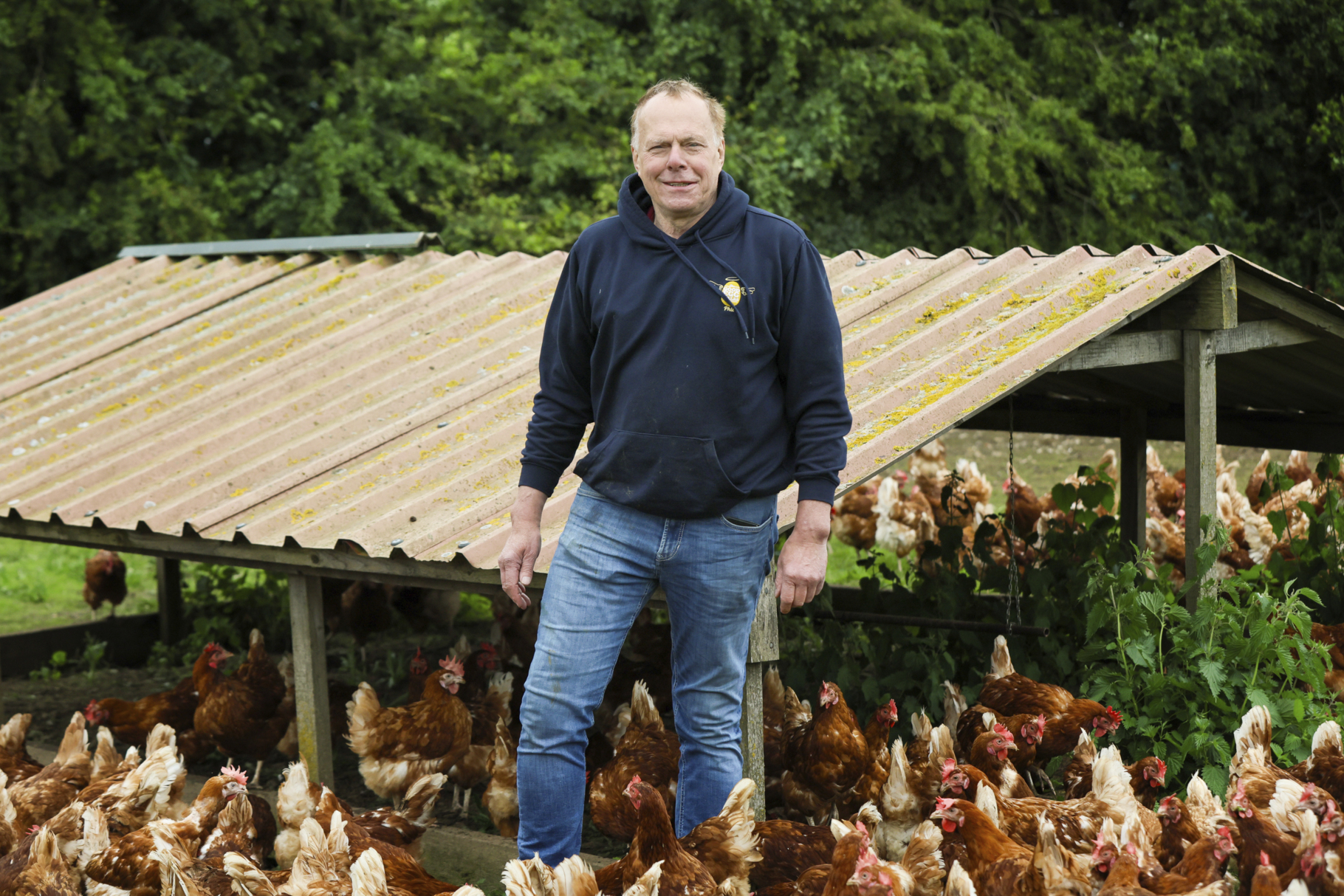
Do you know where your eggs come from?
Every year, in the UK, we consume over seven billion eggs, but did you know that about 20% (approx eight million) of these come from hens still kept in cages?
Although “battery cages” were outlawed in 2012, “enriched cages” are still legal in the UK and these provide just 9% more usable space per bird than the banned battery cages. Hens kept in cages have about the same liveable space as a sheet of A4 paper.
The RSPCA strongly opposes this cruel and outdated practice and is working hard to end it. You can get involved, too, by taking action and contacting your MP.
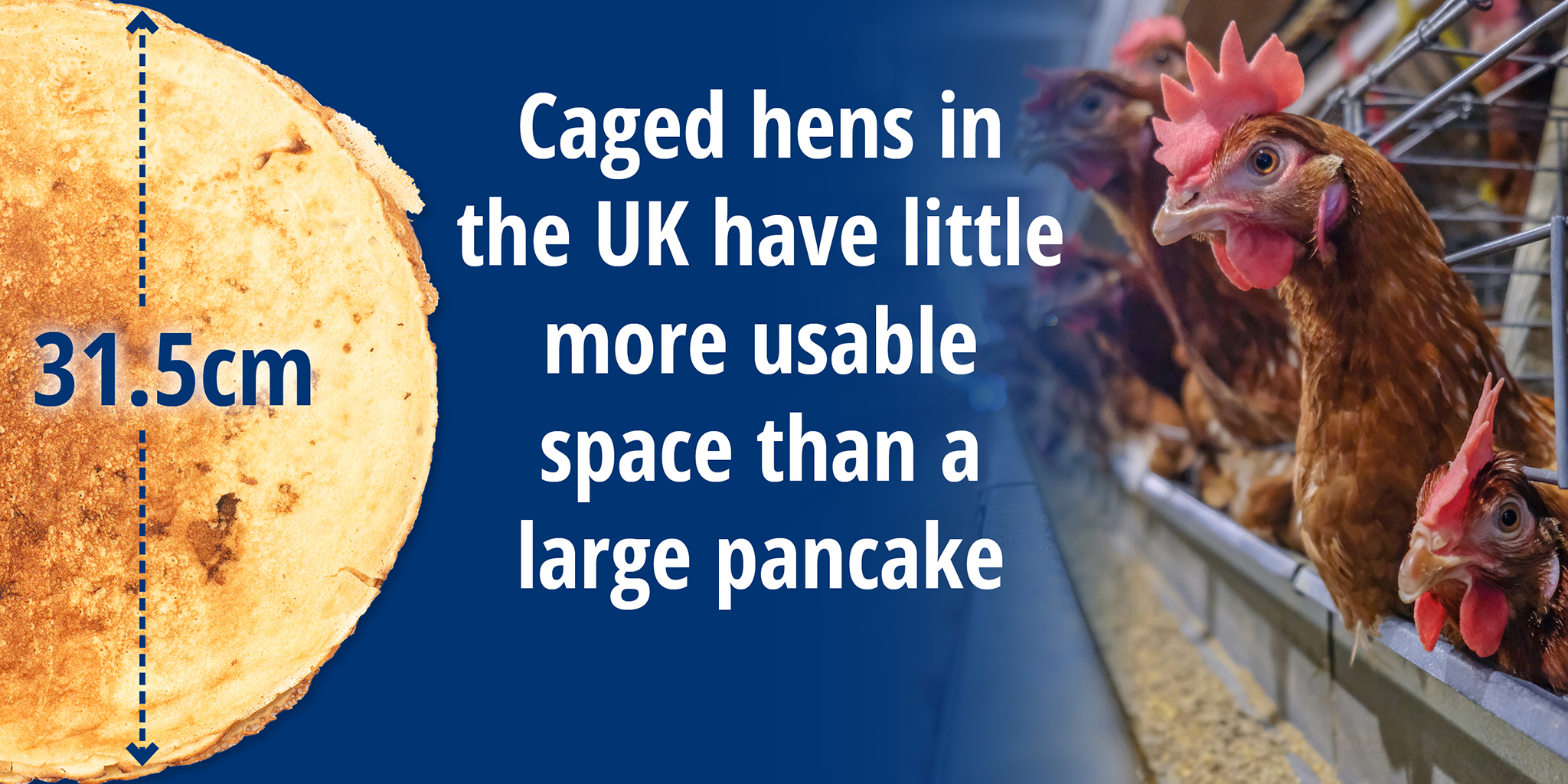
Understanding UK egg codes when shopping
What makes RSPCA Assured certified farms different?
As the only farm assurance scheme dedicated solely to farmed animal welfare, our members go far beyond the government’s welfare standard requirements. You can find out more with our thorough breakdown of how the RSPCA’s laying-hen standards go beyond the UK’s baseline minimum.
Perching
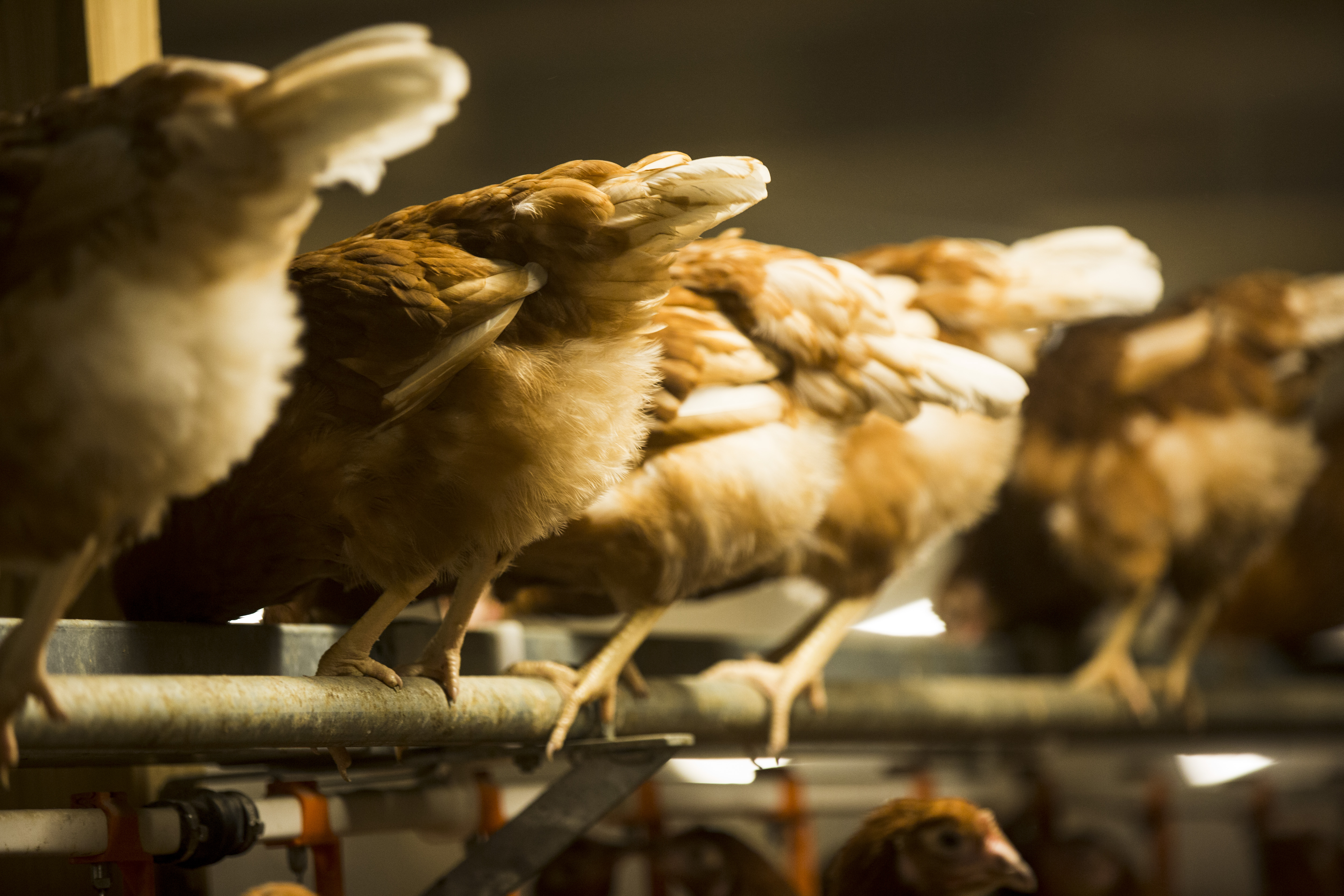
Hens have a strong, natural instinct to perch. Perches allow the birds the perfect space to rest and preen. Being able to exhibit these natural behaviours ensures the hens are less stressed, which leads to reduced aggression and healthier living.
On RSPCA Assured farms, perches for hens must be positioned to make it easier for hens to access the perches and land safely. Find out more about perching on hen farms.
Environmental Enrichment
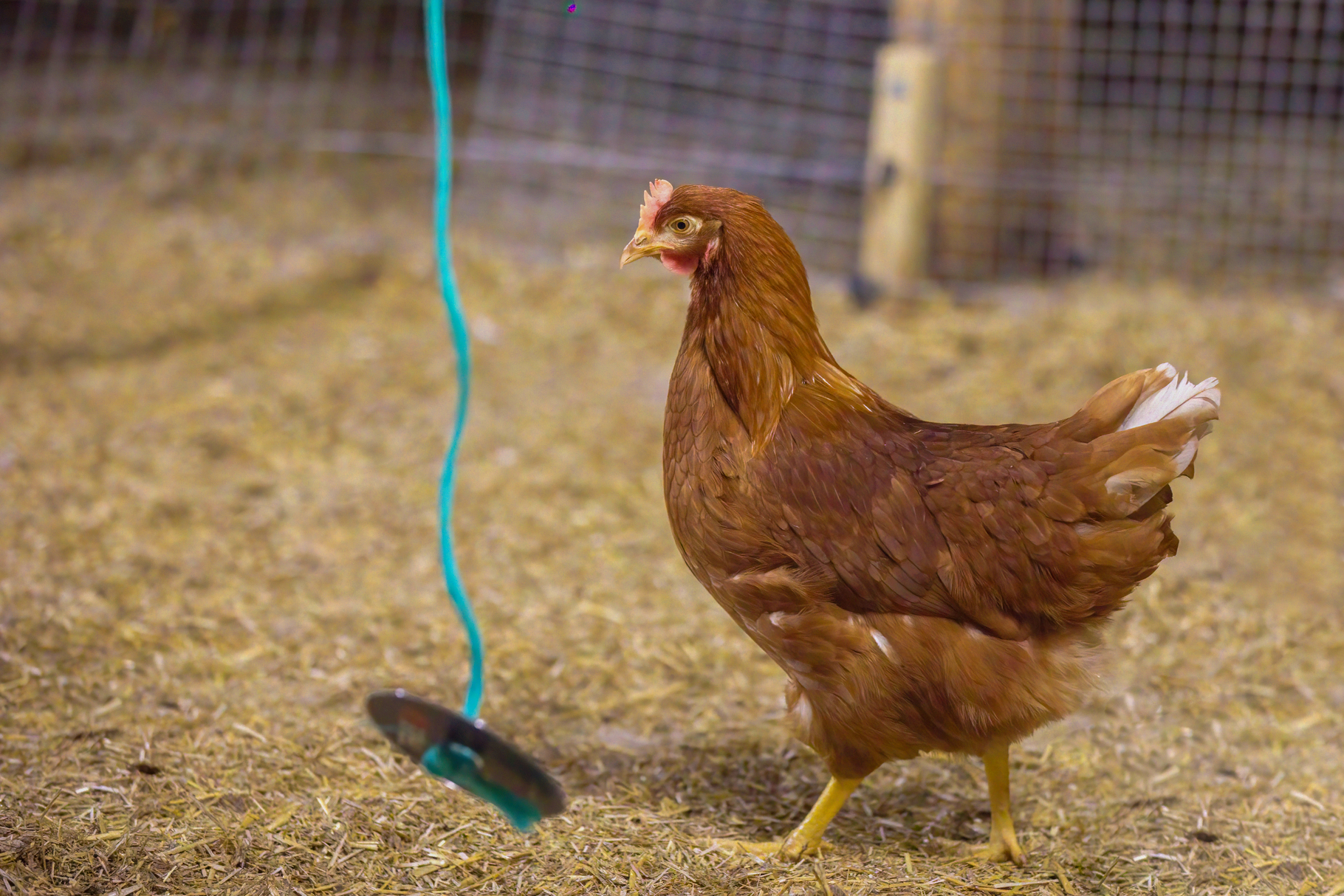
Like all animals, hens need things to keep them occupied, like straw bales or objects to peck at. These objects encourage the birds to be active and engage in their natural behaviours like nesting, pecking and dust bathing.
The RSPCA’s welfare standards insist that hens be provided with environmental enrichment to encourage the performance of natural behaviours.
Dust Bathing
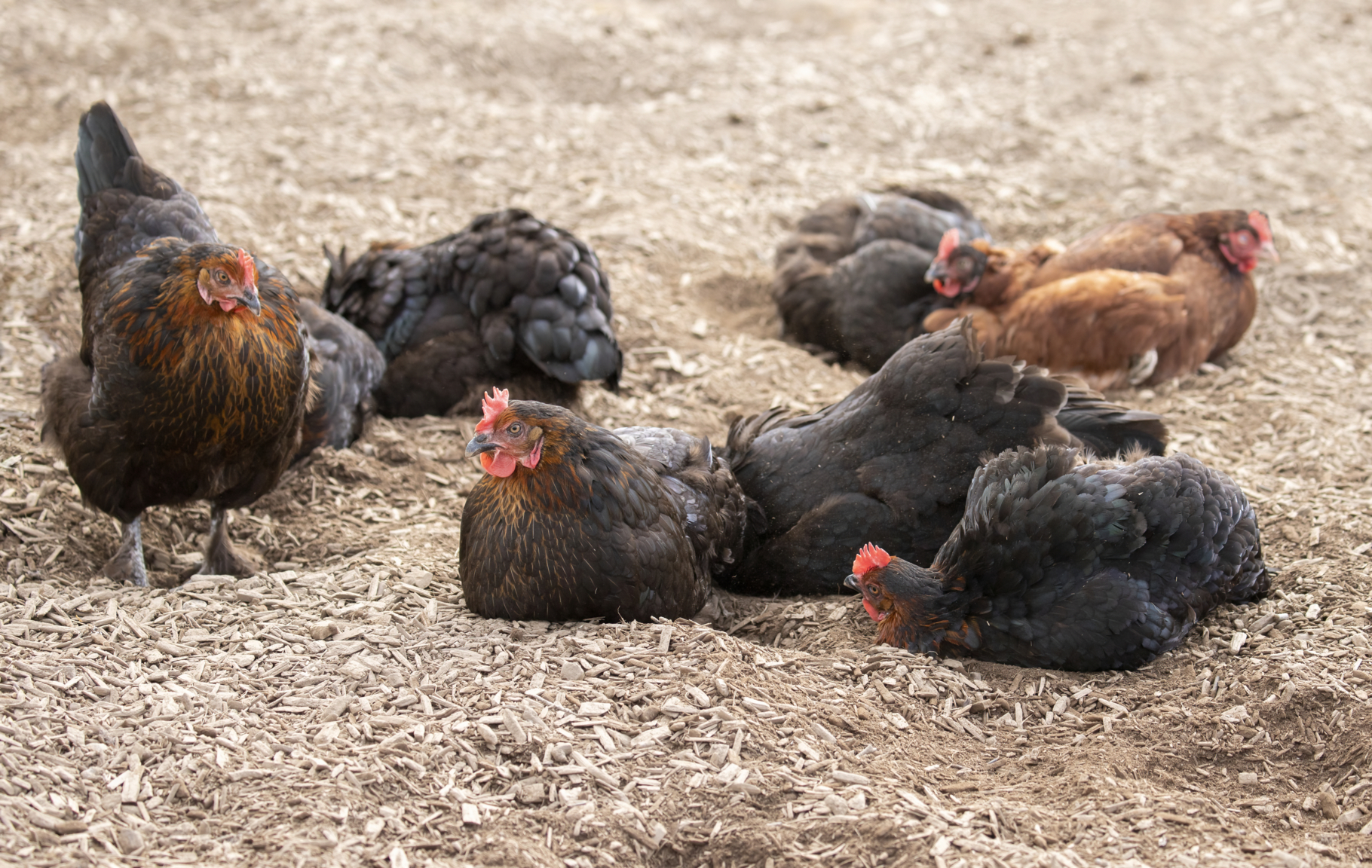
Dust bathing is a vital part of the natural behaviour of hens and is essential for their wellbeing, especially in the heat. To help hens stay cool and happy, they need access to a dust bathing area in a well-ventilated and shaded spot.
We encourage all RSPCA Assured lay hen farms to ensure their birds have free and easy access to dustbathing areas. Read more about dustbathing.
No cages … ever
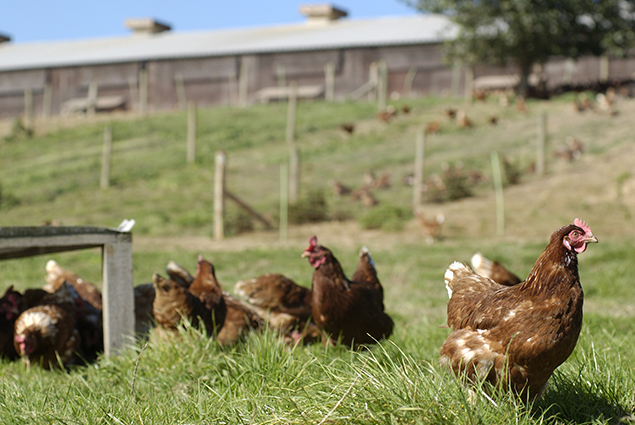
Hens can never be caged on RSPCA Assured certified farms. Whether they are free-range, organic, or barn-reared, the birds always have the freedom to roam around and express their natural behaviours, such as nesting, perching, and dust bathing.Whilst traditional battery cages were banned in 2012, sadly, their replacement with "enriched" cages has not been a great improvement for hens. Find out more about battery hens and the RSPCA Assured's commitment to hen welfare.
Hen rearing systems
Hens are raised in various systems. Whether free-range, in barns, or with verandas, hens on RSPCA Assured certified farms are always raised to strict higher welfare standards.
Free range
With constant daytime access to the outdoors, the hens are free to roam and explore their environment. Shade and shelter, purpose-built and natural, protect the birds from bad weather and predators. This gives the hens a sense of security, so they feel safer exploring their space. Regular dustbathing and environmental enrichment help keep the birds stress-free. The vast majority of all egg-laying hens on RSPCA Assured certified farms are free-range.
Barn
Barn hens are raised indoors and experience constant protection from the elements all year round. We focus on standards that improve the birds' lives rather than simply whether they are kept indoors or outdoors. On RSPCA Assured member farms, birds are given more space. The RSPCA’s standards require that all barn hens have access to the same environmental enrichment as free-range birds and that they too have access to facilities to dustbathe. Less than 4% of all RSPCA Assured egg-laying hens are raised inside barns.
Veranda
Some free-range and barn systems have verandas. This is an additional roofed structure attached to the outside of the building. There is a fully littered floor, and while the hens have access to natural light and an outdoor environment, they are protected from the worst of the elements. The hens access the veranda via popholes (large openings), which allow them to pass freely between the barn and the veranda. The veranda provides more space for enrichment and foraging opportunities.








